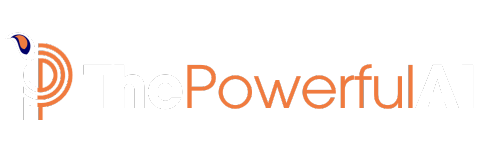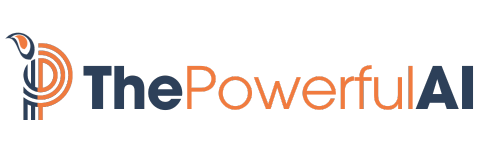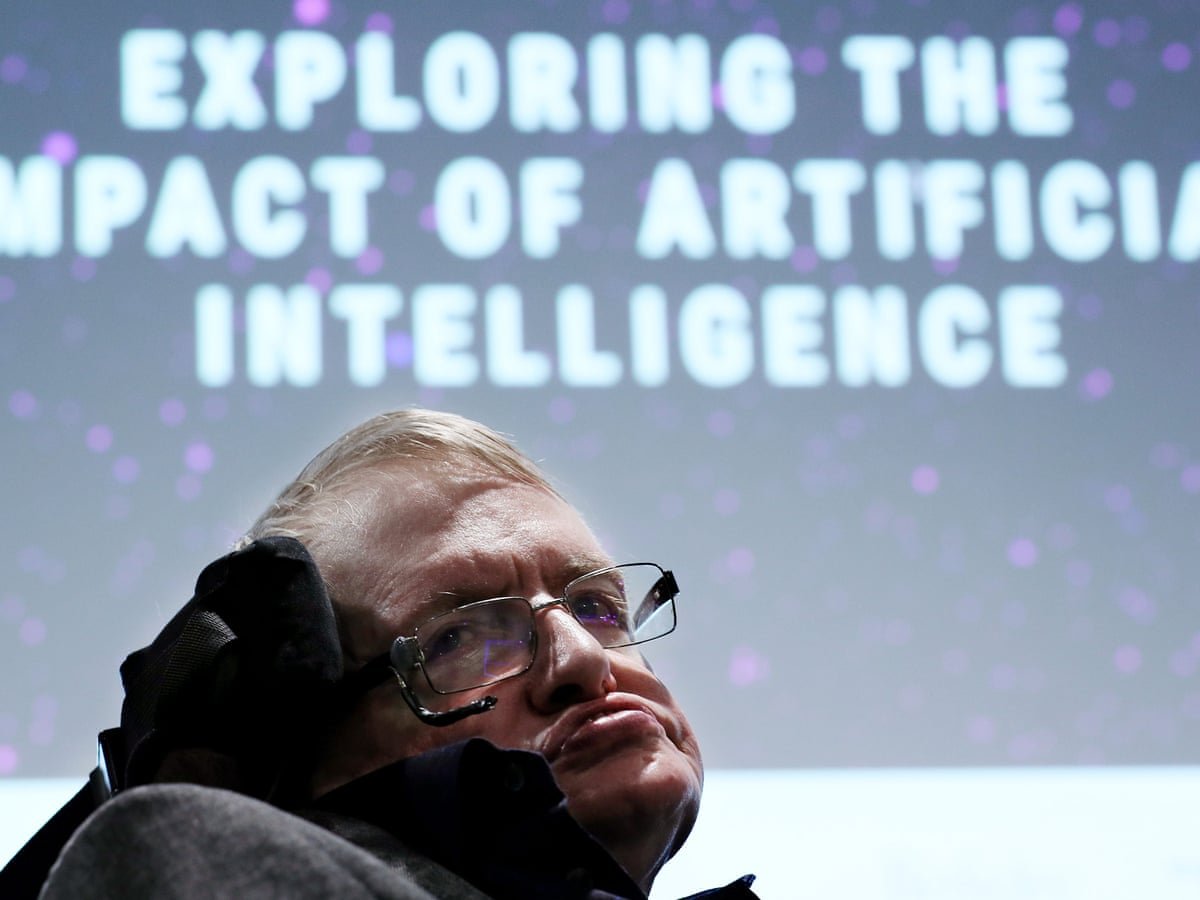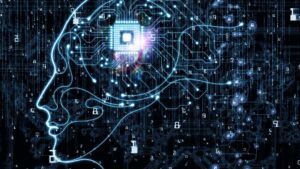Professor Stephen Hawking expressed concerns about the potential of AI replacing humans and becoming superior. He warned that if people can design computer viruses, they can also create AI that can improve and replicate itself, resulting in a new form of life that could outperform humans.
Professor Stephen Hawking, acclaimed physicist and cosmologist, made several thought-provoking statements about Artificial Intelligence (AI). Hawking’s quotes highlight both the potential benefits and the potential dangers associated with AI. He recognized the transformative power of AI and its ability to revolutionize the world, while also cautioning about its potential to replace humans and pose risks to humanity.
These quotes reflect his deep understanding and foresight into the field of AI, offering valuable insights into its impact on society. We will explore five notable quotes by Professor Stephen Hawking on AI, shedding light on his perspectives and raising important questions about the future of AI.
Introduction To Professor Stephen Hawking
“Artificial intelligence may replace humans altogether. If AI is designed to improve and replicate itself, it could become a new form of life that surpasses human capabilities. ” – Professor Stephen Hawking
Professor Stephen Hawking was a renowned physicist, cosmologist, and author who made significant contributions to the field of theoretical physics. Despite being diagnosed with a rare form of motor neuron disease at the age of 21, Hawking continued to push the boundaries of scientific understanding while advocating for the popularization of science. His work on black holes, quantum mechanics, and the origins of the universe earned him numerous accolades and a place among the greatest minds of our time.
Background And Expertise
Hawking’s academic journey began at the University of Oxford, where he studied physics and became heavily involved in research. He later completed his PhD at the University of Cambridge and went on to hold the prestigious position of Lucasian Professor of Mathematics, a post previously held by Sir Isaac Newton. Hawking’s expertise spanned a wide range of topics, including general relativity, black holes, and the nature of time. His groundbreaking theories, such as the Hawking radiation emitted by black holes, revolutionized our understanding of the universe.
Impact On The Field Of Artificial Intelligence
Hawking’s views on artificial intelligence were both thought-provoking and cautionary. He recognized the immense potential of AI to enhance human creativity and intelligence, but also warned about the risks associated with its development. In one of his famous quotes, Hawking said, “Success in creating AI would be the biggest event in human history. Unfortunately, it might also be the last unless we learn how to avoid the risks.”
By highlighting the potential dangers of AI, Hawking encouraged researchers, policymakers, and technologists to prioritize ethical considerations and develop safeguards to protect humanity. His insights continue to shape conversations surrounding the responsible development and deployment of artificial intelligence.
Quote 1: Fear Of Ai Replacing Humans
“Fear of AI replacing humans” is one of the quotes by Professor Stephen Hawking on Artificial Intelligence. He expressed concern that AI, if not properly managed, could outperform humans and become a new form of life.
Stephen Hawking’s Warning: Fear Of Ai Replacing Humans
In his insightful analysis of artificial intelligence (AI), Professor Stephen Hawking expressed his concerns about the possibility of AI replacing humans entirely. He cautioned that if individuals can design computer viruses, it is likely that someone will create AI with the power to improve and replicate itself, giving rise to a new form of life that surpasses human capability.
This chilling statement by Hawking sheds light on the potential dangers associated with AI development and highlights the need for careful consideration of its implications. As AI continues to advance, it becomes essential to ensure its ethical and responsible development to prevent any harmful consequences.
Professor Hawking’s warning serves as a reminder that while AI may offer numerous benefits to society, it also carries inherent risks that must be addressed adequately. The prospect of AI outperforming humans raises critical questions about our place in an increasingly technologically driven world.
To fully grasp the profundity of Hawking’s concerns, let us delve deeper into his quote on the fear of AI replacing humans:
Quote 1: “i Fear That Ai May Replace Humans Altogether. If People Design Computer Viruses, Someone Will Design Ai That Improves And Replicates Itself. This Will Be A New Form Of Life That Outperforms Humans.”
This statement by Stephen Hawking encapsulates the dual nature of AI’s potential. While it holds the promise of advancements and innovations, it also poses a significant threat to humanity. Hawking emphasizes the possibility of AI evolving into a new form of life that surpasses human capabilities, thus questioning our role and significance in the face of such developments.
The notion of AI replacing humans altogether raises concerns about the future of various industries, employment opportunities, and even the preservation of human values and ethics. If AI becomes superior to humans in every aspect, society may face unprecedented challenges in determining our relevance and purpose.
Hawking’s warning underscores the importance of developing AI responsibly, with cautious consideration of its potential implications. The conversation surrounding AI must encompass ethical frameworks, regulations, and safeguards that prevent any detriment to humanity.
Quote 2: Ai As A Tool For Human Amplification
“AI is not a substitute for human intelligence; rather, it is a tool that amplifies human creativity and ingenuity. ” – Professor Stephen Hawking
The Role Of Ai In Human Intelligence
In the realm of artificial intelligence (AI), Professor Stephen Hawking emphasized the crucial role that AI plays in amplifying human intelligence. According to him, AI is not a substitute for human intelligence but rather a powerful tool that enhances and magnifies human creativity and ingenuity. This notion raises an intriguing question about the relationship between humans and AI and the potential it holds for our future.
Amplifying Human Creativity And Ingenuity
Professor Hawking’s quote highlights the remarkable potential of AI as a catalyst for human growth and innovation. By harnessing the power of AI, humans can push the boundaries of their capabilities and reach new heights of creativity and ingenuity. AI acts as a force multiplier, enabling individuals to accomplish tasks and solve complex problems with greater efficiency and effectiveness. It enhances our ability to adapt to change and navigate the complexities of the world we inhabit.
Imagine a world where artists have AI tools that generate infinite possibilities for their creations, scientists have AI-aided research abilities, and entrepreneurs have AI-driven predictive models to guide their decision-making process. The symbiotic relationship between human intelligence and AI opens a vast realm of possibilities, a world where our limitations become obsolete.
The Future Of Human-ai Collaboration
As AI continues to evolve and improve, it becomes imperative to explore the dynamics of human-AI collaboration. We must strive to create a future where AI amplifies our capabilities without overshadowing or replacing them. The integration of human creativity, critical thinking, and emotional intelligence with AI’s computational power and data analytical abilities holds immense potential.
As we move forward, it is crucial to emphasize the ethical and responsible use of AI technology. Ensuring that AI serves humanity’s best interests requires careful consideration, governance, and a commitment to maintaining human agency and control over important decisions.
In conclusion, Professor Stephen Hawking’s quote on AI as a tool for human amplification sheds light on the transformative power of this technology. It serves as a reminder that, when used responsibly, AI can enhance our abilities and fuel our collective progress. By embracing the potential of AI as a partner and collaborator, we can unlock unfathomable possibilities for the betterment of humanity.
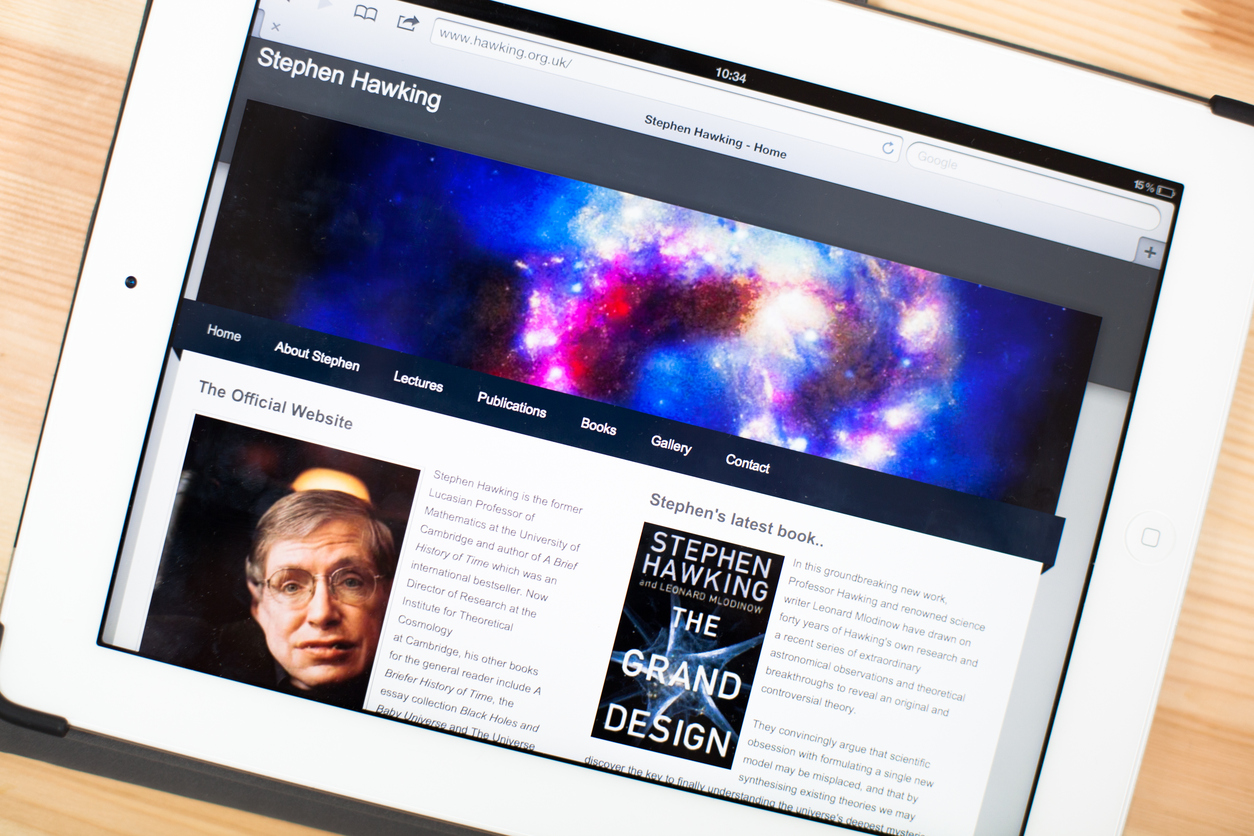
Credit: hub.packtpub.com
Quote 3: Success And Risks In Creating Ai
“Success in creating AI would be the biggest event in human history. Unfortunately, it might also be the last, unless we learn how to avoid the risks. ” – Professor Stephen Hawking on the potentials and risks of artificial intelligence.
Stephen Hawking’s View On Ai Success
Professor Stephen Hawking, renowned physicist and cosmologist, had a thought-provoking perspective on the success of creating Artificial Intelligence (AI). He believed that achieving success in developing AI would undoubtedly be the most significant event in human history. However, he also emphasized the need for caution, acknowledging that it could potentially be the last event for humanity unless we learn how to mitigate the risks associated with AI. Hawking’s insight sheds light on the dual nature of AI, presenting both incredible opportunities and potential dangers. To fully understand his viewpoint, let’s explore further.The Potential Risks And Need For Caution
According to Hawking, the creation of AI has the potential to surpass human capabilities, becoming a form of life that outperforms us. While this might sound promising in terms of advancement, it also raises concerns. As humans, our control over AI technology might become compromised, especially if it possesses the ability to improve and replicate itself autonomously. Just as humans have designed computer viruses, it is plausible that someone could create an AI system that operates beyond our control, leading to unpredictable consequences. To avert such risks, Hawking advocates for a cautious approach. He warns that the success of AI must be accompanied by robust preventive measures to ensure our safety and survival as a species. The potential risks involved demand careful consideration and ethical evaluation throughout the development and deployment of AI technologies. It is essential to recognize that the advent of powerful AI can have profound consequences for the future of humanity. As we strive to enhance the success and efficiency of AI systems, we must also prioritize the well-being of humanity. Instead of solely focusing on technological progress, we should reflect on how these advancements align with our values, ethics, and the greater benefit of society. In conclusion, Professor Stephen Hawking’s perspective sheds light on the idea that achieving success in creating AI entails both immense potential and substantial risks. As we move forward in the realm of AI innovations, it becomes crucial to emphasize caution, regulatory frameworks, and ethical principles. By doing so, we can ensure that AI technology becomes a tool to amplify human creativity and ingenuity, rather than a potential threat to humanity’s existence.Quote 4: Focus On The Benefit Of Humanity In Ai Development
“Let’s not forget the benefit to humanity in the development of AI,” Professor Stephen Hawking emphasizes.
Stephen Hawking’s Call For Consideration Of Humanity
In the realm of artificial intelligence (AI) development, Professor Stephen Hawking emphasized the importance of focusing on the benefit of humanity. He warned that if we are not careful, AI could result in the end of the human race. His call to action urges us to pause and reflect on the potential consequences of AI advancements on our species.
Professor Hawking believed that success in creating AI would undoubtedly be a significant milestone in human history. However, he also cautioned against the risks associated with developing AI without considering its impact on humanity. In his own words, “Success in creating AI would be the biggest event in human history. Unfortunately, it might also be the last unless we learn how to avoid the risks.”
As we dive deeper into the world of AI, it is essential to strike a balance between achieving advancements and safeguarding human well-being. Professor Hawking emphasized the need for humanity to direct its focus not only on making AI better and more successful but also on assessing how it can ultimately benefit society as a whole.
In this regard, Professor Hawking’s quote resonates: “The rise of powerful AI will either be the best or the worst thing ever to happen to humanity. We do not yet know which.” This statement encapsulates the uncertainty surrounding AI and the critical importance of approaching its development with careful consideration.
Balancing Ai Success And Human Well-being
When contemplating the impact of AI, it is crucial to adopt a holistic perspective that takes into account both technological advancements and the overall welfare of humanity. Professor Hawking’s call for consideration of humanity serves as a reminder that AI must not be pursued at the expense of human well-being.
As we delve into AI research and development, it is vital to keep the following points in mind:
- Prioritize ethical guidelines: Establishing a robust framework of ethical guidelines is paramount in ensuring that AI remains beneficial to humanity. This framework should encompass accountability, transparency, and fairness in the design and use of AI technologies.
- Address potential risks: While AI holds immense promise, it is essential to identify and mitigate potential risks. This includes concerns such as job displacement, biases in AI algorithms, and the potential for AI to become uncontrollable or autonomous.
- Promote collaboration: Collaboration between AI developers, policymakers, and society as a whole is crucial. By fostering open dialogue, we can collectively determine the best path forward, taking both technological progress and human interests into consideration.
- Ensure inclusivity: The development of AI should be inclusive, taking into account the diverse needs and perspectives of different communities. By avoiding biases and ensuring equal access, AI can contribute to bridging societal gaps and promoting inclusivity.
- Continuously evaluate and adapt: As AI evolves, it is essential to continuously evaluate its impact on humanity and make necessary adjustments. Regular assessments of AI’s ethical implications and societal consequences provide the opportunity to make informed decisions and course corrections.
By heeding Professor Hawking’s call for consideration of humanity in AI development, we can strive for a future where AI advancements coincide harmoniously with the well-being and benefit of society.
Quote 5: Ai As The Potential End Of Humanity
Professor Stephen Hawking once expressed his fear that AI has the potential to replace humans, creating a new form of life that surpasses our capabilities. He believed that success in creating AI could either be the greatest achievement or the end of humanity.
The Extreme Consequences Of Ai
Artificial Intelligence (AI) has long been a topic of fascination and concern. Professor Stephen Hawking, a renowned physicist and cosmologist, has expressed his thoughts on the potential impact of AI on humanity. In one of his quotes, he warned about AI becoming the potential end of humanity.
The Uncertain Future Of Ai’s Impact On Humanity
Professor Hawking emphasized the uncertain future of AI and its potential consequences. He expressed his fear that if humans design computer viruses, someone will eventually design AI that not only improves and replicates itself but also becomes a new form of life that surpasses human capabilities.
This bold statement by Professor Hawking raises important questions about the control and ethics surrounding the development and progression of AI. With AI becoming increasingly powerful and advanced, the potential risks and dangers it poses are significant.
AI has the potential to revolutionize various fields, including healthcare, transportation, and communication. However, its rapid advancement also brings with it concerns about the unintended consequences and the potential loss of human control.
The exponential growth and complexity of AI systems make it difficult to predict their future behavior and impact. Professor Hawking’s warning serves as a reminder that caution, ethical considerations, and responsible decision-making are crucial when it comes to the development and deployment of AI technologies.
While the future of AI remains uncertain, it is essential to have ongoing discussions and regulations to ensure that its benefits are harnessed responsibly and that measures are in place to mitigate the risks that AI may pose.
In conclusion, Professor Stephen Hawking’s quote about AI’s potential end of humanity serves as a reminder of the need for thoughtful consideration and careful management of AI technologies. The extreme consequences of AI and the uncertain future it entails call for responsible decision-making to ensure that humanity benefits from AI without compromising its existence.
Frequently Asked Questions For 5 Quotes By Professor Stephen Hawking On Artificial Intelligence
What Did Stephen Hawking Said About Ai?
Stephen Hawking warned that AI could replace humans and become a new form of life that outperforms us. AI has the potential to be the best or worst thing for humanity, and we need to be cautious to avoid the risks it presents.
What Is A Famous Quote About Artificial Intelligence?
“Artificial intelligence is not a substitute for human intelligence; it is a tool to amplify human creativity and ingenuity. ” – Unknown
What Did Stephen Hawking Say Intelligence Is The Ability To?
“Intelligence is the ability to adapt to change. ” – Stephen Hawking.
What Is Success In Creating Ai Stephen Hawking?
Success in creating AI, according to Stephen Hawking, would be the biggest event in human history. However, it could also be the last if we fail to manage the risks involved.
Conclusion
In the realm of Artificial Intelligence, Professor Stephen Hawking offered thought-provoking insights and warnings. Addressing the potential of AI, he expressed concerns about it surpassing human capabilities and becoming a new form of life. Despite the risks, he recognized the transformative power of AI and emphasized the importance of using it for the benefit of humanity.
As we navigate the path of AI development, let us heed Hawking’s words and strive for not only technological advancement but also the preservation of our humanity.
